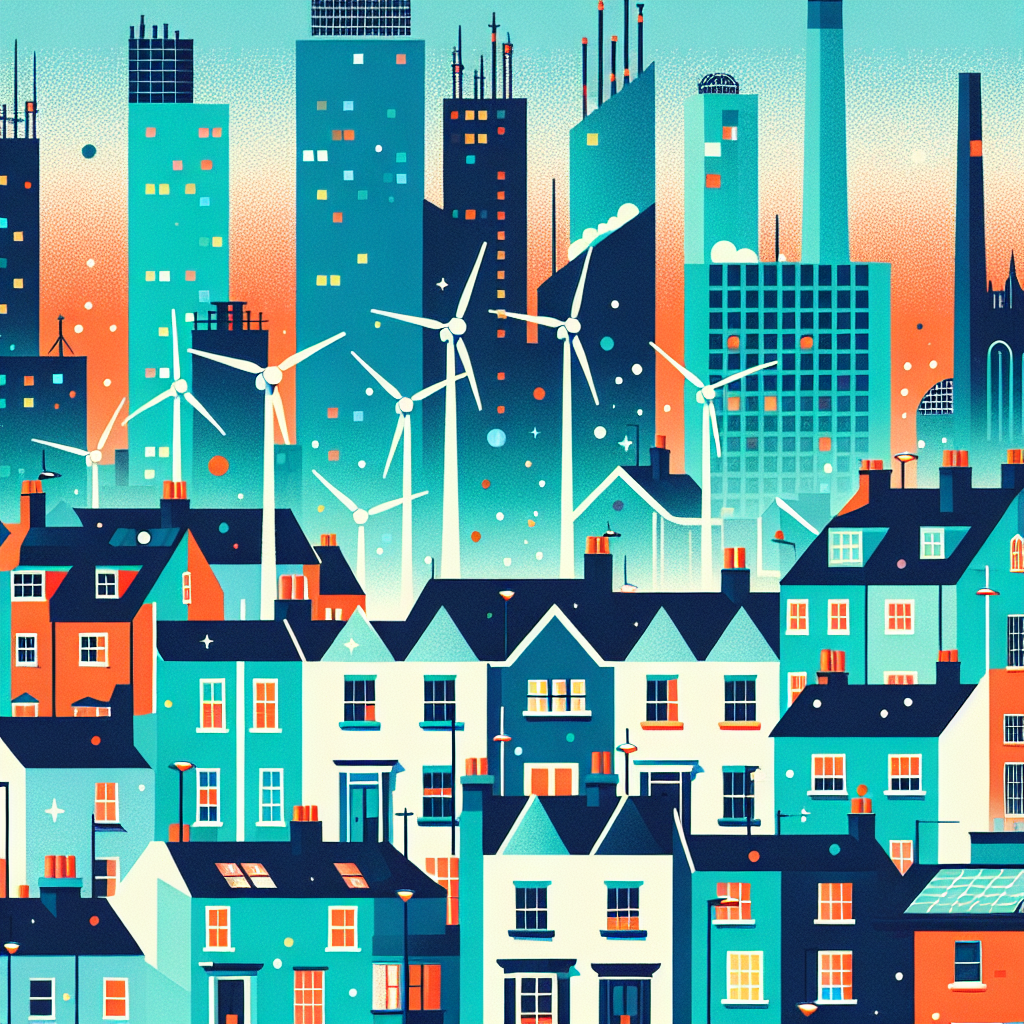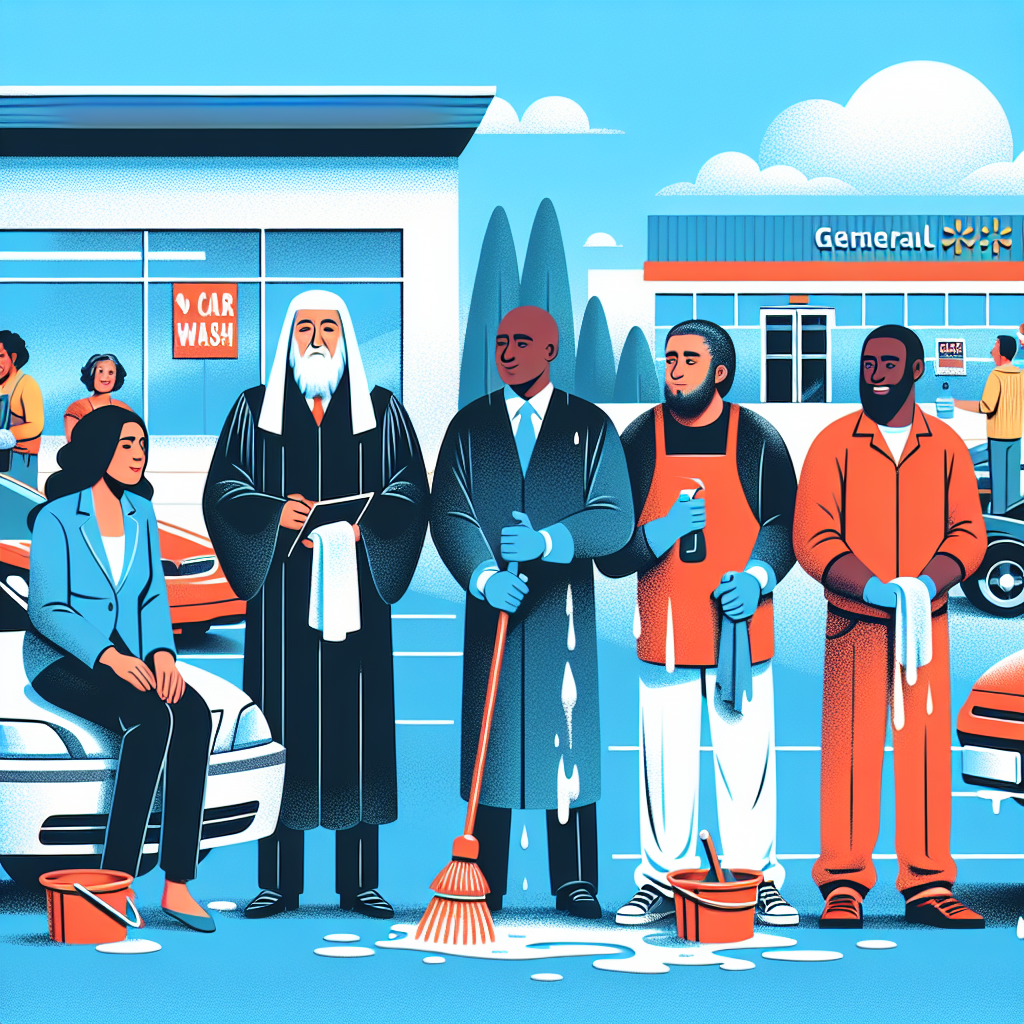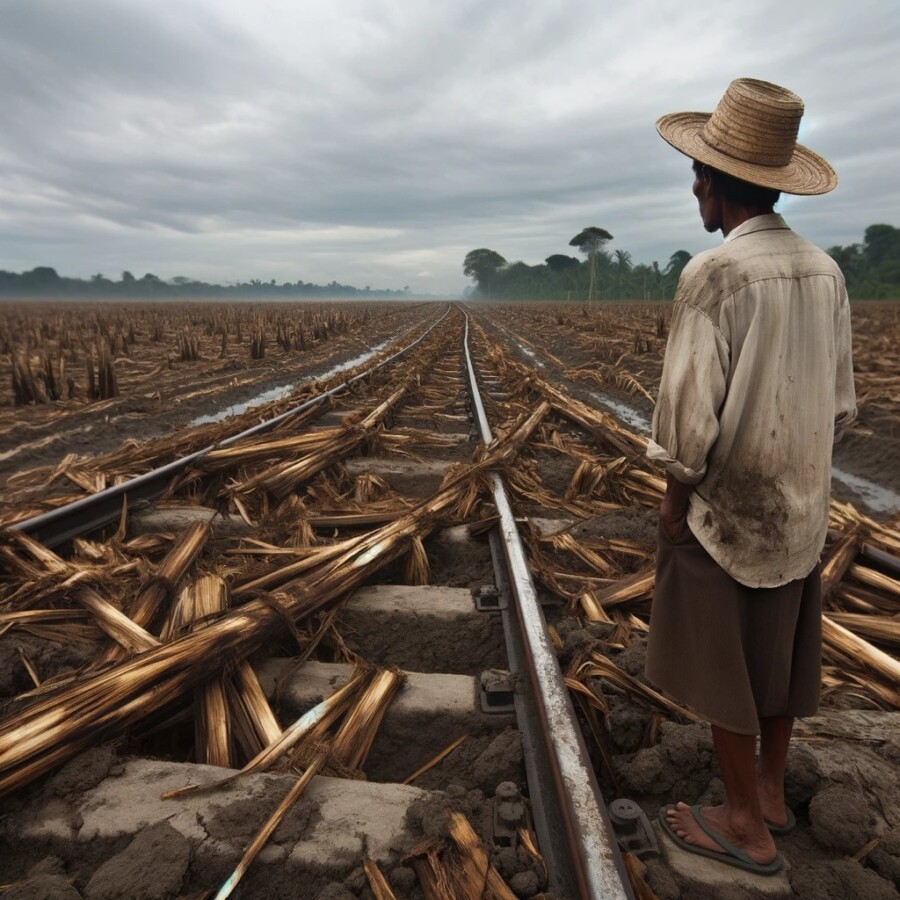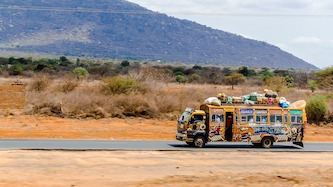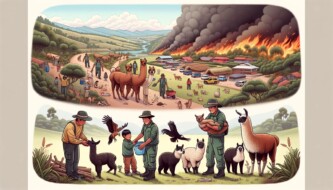The United Kingdom is about to do something big by stopping its use of coal power after 142 years. The last coal power station in the country, Ratcliffe-on-Soar Power Station near Nottingham, will stop working on Monday. This is a major step for the UK in fighting climate change because coal is a dirty fossil fuel that releases a lot of greenhouse gases when it’s burned.
The UK has a long history with coal power, being where it all began. Coal has been crucial in providing electricity for the nation, from the first coal-fired power station in London in 1882 to its major role in the twentieth century. But as we learned more about climate change, it became clear that we needed to switch to cleaner energy sources.
In the 1990s, the UK started using more gas instead of coal for electricity, but coal still played a big part for many years. By setting climate targets in 2008 and deciding to stop using coal power by 2015, the UK showed leadership in fighting climate change and encouraged other countries to do the same.
Renewable energy has grown a lot in the UK, making up over half of the country’s power by the first half of 2024. This shift to green power led to days without using coal as early as 2017. Closing Ratcliffe-on-Soar Power Station is a big move towards a more sustainable and eco-friendly energy future in the UK.
Original news source: UK to finish with coal power after 142 years (BBC)
🎧 Listen:
Slow
Normal
Fast
📖 Vocabulary:
| 1 | fossil | Remains of ancient plants or animals that have turned into rock |
| 2 | greenhouse gases | Gases that trap heat in the atmosphere and contribute to global warming |
| 3 | electricity | A form of energy that powers lights, machines, and devices |
| 4 | leadership | The ability to guide or direct others, often in a positive way |
| 5 | sustainable | Able to be maintained or continued without harming the environment |
| 6 | eco-friendly | Not harmful to the environment |
| 7 | renewable | Able to be replaced naturally and used again |
| 8 | climate | The usual weather conditions in a particular area |
| 9 | targets | Goals or objectives that are aimed to be achieved |
| 10 | encouraged | Gave support or confidence to someone to do something |
| 11 | sources | Places or things from which something comes or is obtained |
| 12 | major | Very important or significant |
| 13 | shift | A change in position or direction |
| 14 | providing | Supplying or making something available |
| 15 | future | The time that is yet to come |
Group or Classroom Activities
Warm-up Activities:
– Charades
Instructions: Divide the students into two teams. Write down key words from the article on small pieces of paper. One student from each team will pick a piece of paper and without saying anything, they need to act out the word while their team guesses. Set a time limit for each round and keep score.
– News Summary
Instructions: Ask students to work in pairs and summarize the main points of the article in their own words. Encourage them to focus on key information such as why the UK is stopping the use of coal power and the history of coal power in the country. Afterward, have some pairs share their summaries with the class.
– Opinion Poll
Instructions: Prepare a list of statements related to the article (e.g., “Stopping the use of coal power is essential for fighting climate change”). Have students walk around the classroom and ask their classmates for their opinions on each statement. Encourage them to engage in discussions and exchange viewpoints. Afterward, discuss the most common opinions as a class.
– Vocabulary Pictionary
Instructions: Write down key vocabulary words from the article on the board. Divide the students into small groups and ask them to choose a word to draw without using letters or numbers. The other group members have to guess the word. This activity will help reinforce vocabulary from the article in a fun and creative way.
– Think-Pair-Share
Instructions: Pose a question related to the article to the class (e.g., “Why is it important for countries to shift to cleaner energy sources?”). Ask students to think about their answer individually first, then pair up with a classmate to discuss their thoughts. Finally, have a few pairs share their answers with the whole class and encourage a group discussion on the topic.
🤔 Comprehension Questions:
1. Why is the UK stopping its use of coal power after 142 years?
2. What is the name of the last coal power station in the UK that will stop working?
3. Why is coal considered a dirty fossil fuel?
4. When did the UK start using more gas instead of coal for electricity?
5. How has the UK shown leadership in fighting climate change according to the article?
6. What percentage of the UK’s power came from renewable energy in the first half of 2024?
7. When did the UK start having days without using coal for power?
8. What does closing Ratcliffe-on-Soar Power Station represent for the UK’s energy future?
Go to answers ⇩
🎧✍️ Listen and Fill in the Gaps:
The United Kingdom is (1)______ to do something big by (2)______ its use of coal power after 142 years. The last coal power station in the country, Ratcliffe-on-Soar Power Station near Nottingham, will stop working on Monday. This is a (3)______ step for the UK in fighting climate change because coal is a dirty (4)______ fuel that releases a lot of (5)______ gases when it’s burned.
The UK has a long history with coal (6)______, being where it all began. Coal has been crucial in providing electricity for the nation, from the first coal-fired power (7)______ in (8)______ in 1882 to its major role in the twentieth century. But as we learned more about climate change, it became clear that we needed to (9)______ to cleaner energy sources.
In the 1990s, the UK started (10)______ more gas instead of coal for electricity, but coal still (11)______ a big part for many (12)______. By setting climate targets in 2008 and deciding to stop using coal power by 2015, the UK showed leadership in fighting climate change and encouraged other countries to do the same.
Renewable (13)______ has (14)______ a lot in the UK, making up over half of the country’s power by the first half of 2024. This shift to green power led to days without using coal as early as 2017. Closing Ratcliffe-on-Soar Power (15)______ is a big move towards a more sustainable and eco-friendly energy (16)______ in the UK.
Go to answers ⇩
💬 Discussion Questions:
Students can ask a partner these questions, or discuss them as a group.
1. What is coal power and why is it considered bad for the environment?
2. How do you think the UK’s decision to stop using coal power will impact the fight against climate change?
3. Do you think other countries should follow the UK’s example and stop using coal power? Why or why not?
4. How would you feel if your country decided to prioritize renewable energy sources over coal power?
5. Do you think it’s important for countries to set climate targets like the UK did in 2008? Why or why not?
6. What are some benefits of using renewable energy sources instead of coal power?
7. How do you think the closure of the Ratcliffe-on-Soar Power Station will affect the local community?
8. Do you think the UK’s shift towards renewable energy will inspire other countries to do the same? Why or why not?
9. What role do you think individuals can play in supporting the transition to cleaner energy sources?
10. How do you think the environment will benefit from the UK’s decision to stop using coal power?
11. Do you believe that investing in renewable energy is a better long-term solution than relying on fossil fuels like coal? Why or why not?
12. How can young people like us contribute to the fight against climate change in our own communities?
13. Do you think the closure of coal power stations will lead to job losses in the energy sector? Why or why not?
14. What are some challenges countries may face when transitioning from coal power to renewable energy sources?
15. Why do you think it’s important for governments to take action against climate change, like the UK did by stopping the use of coal power?
Individual Activities
📖💭 Vocabulary Meanings:
Match each word to its meaning.
Words:
1. fossil
2. greenhouse gases
3. electricity
4. leadership
5. sustainable
6. eco-friendly
7. renewable
8. climate
9. targets
10. encouraged
11. sources
12. major
13. shift
14. providing
15. future
Meanings:
(A) Gases that trap heat in the atmosphere and contribute to global warming
(B) Very important or significant
(C) The usual weather conditions in a particular area
(D) Supplying or making something available
(E) Able to be maintained or continued without harming the environment
(F) Not harmful to the environment
(G) The ability to guide or direct others, often in a positive way
(H) Goals or objectives that are aimed to be achieved
(I) A change in position or direction
(J) A form of energy that powers lights, machines, and devices
(K) Gave support or confidence to someone to do something
(L) Places or things from which something comes or is obtained
(M) Remains of ancient plants or animals that have turned into rock
(N) Able to be replaced naturally and used again
(O) The time that is yet to come
Go to answers ⇩
🔡 Multiple Choice Questions:
1. When will the last coal power station in the UK stop working?
(a) Tuesday
(b) Wednesday
(c) Thursday
(d) Monday
2. Why is stopping the use of coal power a big step for the UK?
(a) Coal is cheap
(b) Coal releases a lot of greenhouse gases
(c) Coal is easy to find
(d) Coal is colorful
3. When did the UK start using more gas for electricity?
(a) 1990s
(b) 2000s
(c) 1980s
(d) 1970s
4. What did the UK decide in 2008 regarding coal power?
(a) To use more of it
(b) To double its use
(c) To stop using it by 2015
(d) To export it to other countries
5. What percentage of the UK’s power came from renewable energy by the first half of 2024?
(a) Less than a quarter
(b) Over half
(c) Exactly half
(d) Almost all
6. When did the UK start having days without using coal?
(a) 2020
(b) 2015
(c) 2017
(d) 2010
7. What is the main benefit of closing the Ratcliffe-on-Soar Power Station?
(a) More pollution
(b) Cheaper electricity
(c) More greenhouse gases
(d) A more sustainable energy future
8. What did the UK’s decision to stop using coal power by 2015 encourage other countries to do?
(a) Fight climate change
(b) Use more coal
(c) Ignore climate change
(d) Use more gas
Go to answers ⇩
🕵️ True or False Questions:
1. Coal is a clean fossil fuel that releases few greenhouse gases.
2. Renewable energy now makes up over half of the UK’s power.
3. The UK is increasing the use of coal power after 142 years.
4. The first coal power station in the UK is Ratcliffe-on-Soar Power Station.
5. The UK has a short history with coal power.
6. The UK started using more gas instead of coal in the 1990s.
7. Stopping coal power is a big step in fighting climate change.
8. The UK set climate targets in 2008 to stop using coal power by 2015.
Go to answers ⇩
📝 Write a Summary:
Write a summary of this news article in two sentences.
Check your writing now with the best free AI for English writing!
Writing Questions:
Answer the following questions. Write as much as you can for each answer.
Check your answers with our free English writing assistant!
1. Why is the UK stopping its use of coal power after 142 years?
2. How has coal been important in providing electricity for the UK in the past?
3. When did the UK start using more gas instead of coal for electricity?
4. How has the UK shown leadership in fighting climate change according to the article?
5. What is the significance of closing Ratcliffe-on-Soar Power Station for the UK’s energy future?
✅ Answers
🤔✅ Comprehension Question Answers:
1. Why is the UK stopping its use of coal power after 142 years?
The UK is stopping its use of coal power to fight climate change because coal releases a lot of greenhouse gases when burned.
2. What is the name of the last coal power station in the UK that will stop working?
The last coal power station in the UK that will stop working is Ratcliffe-on-Soar Power Station near Nottingham.
3. Why is coal considered a dirty fossil fuel?
Coal is considered a dirty fossil fuel because it releases a lot of greenhouse gases, which contribute to climate change, when it is burned.
4. When did the UK start using more gas instead of coal for electricity?
In the 1990s, the UK started using more gas instead of coal for electricity.
5. How has the UK shown leadership in fighting climate change according to the article?
The UK has shown leadership in fighting climate change by setting climate targets in 2008 and deciding to stop using coal power by 2015, which encouraged other countries to do the same.
6. What percentage of the UK’s power came from renewable energy in the first half of 2024?
By the first half of 2024, over half of the UK’s power came from renewable energy sources.
7. When did the UK start having days without using coal for power?
The UK started having days without using coal for power as early as 2017.
8. What does closing Ratcliffe-on-Soar Power Station represent for the UK’s energy future?
Closing Ratcliffe-on-Soar Power Station represents a big move towards a more sustainable and eco-friendly energy future in the UK.
Go back to questions ⇧
🎧✍️✅ Listen and Fill in the Gaps Answers:
(1) about
(2) stopping
(3) major
(4) fossil
(5) greenhouse
(6) power
(7) station
(8) London
(9) switch
(10) using
(11) played
(12) years
(13) energy
(14) grown
(15) Station
(16) future
Go back to questions ⇧
📖💭✅ Vocabulary Meanings Answers:
1. fossil
Answer: (M) Remains of ancient plants or animals that have turned into rock
2. greenhouse gases
Answer: (A) Gases that trap heat in the atmosphere and contribute to global warming
3. electricity
Answer: (J) A form of energy that powers lights, machines, and devices
4. leadership
Answer: (G) The ability to guide or direct others, often in a positive way
5. sustainable
Answer: (E) Able to be maintained or continued without harming the environment
6. eco-friendly
Answer: (F) Not harmful to the environment
7. renewable
Answer: (N) Able to be replaced naturally and used again
8. climate
Answer: (C) The usual weather conditions in a particular area
9. targets
Answer: (H) Goals or objectives that are aimed to be achieved
10. encouraged
Answer: (K) Gave support or confidence to someone to do something
11. sources
Answer: (L) Places or things from which something comes or is obtained
12. major
Answer: (B) Very important or significant
13. shift
Answer: (I) A change in position or direction
14. providing
Answer: (D) Supplying or making something available
15. future
Answer: (O) The time that is yet to come
Go back to questions ⇧
🔡✅ Multiple Choice Answers:
1. When will the last coal power station in the UK stop working?
Answer: (d) Monday
2. Why is stopping the use of coal power a big step for the UK?
Answer: (b) Coal releases a lot of greenhouse gases
3. When did the UK start using more gas for electricity?
Answer: (a) 1990s
4. What did the UK decide in 2008 regarding coal power?
Answer: (c) To stop using it by 2015
5. What percentage of the UK’s power came from renewable energy by the first half of 2024?
Answer: (b) Over half
6. When did the UK start having days without using coal?
Answer: (c) 2017
7. What is the main benefit of closing the Ratcliffe-on-Soar Power Station?
Answer: (d) A more sustainable energy future
8. What did the UK’s decision to stop using coal power by 2015 encourage other countries to do?
Answer: (a) Fight climate change
Go back to questions ⇧
🕵️✅ True or False Answers:
1. Coal is a clean fossil fuel that releases few greenhouse gases. (Answer: False)
2. Renewable energy now makes up over half of the UK’s power. (Answer: True)
3. The UK is increasing the use of coal power after 142 years. (Answer: False)
4. The first coal power station in the UK is Ratcliffe-on-Soar Power Station. (Answer: False)
5. The UK has a short history with coal power. (Answer: False)
6. The UK started using more gas instead of coal in the 1990s. (Answer: True)
7. Stopping coal power is a big step in fighting climate change. (Answer: True)
8. The UK set climate targets in 2008 to stop using coal power by 2015. (Answer: True)
Go back to questions ⇧

